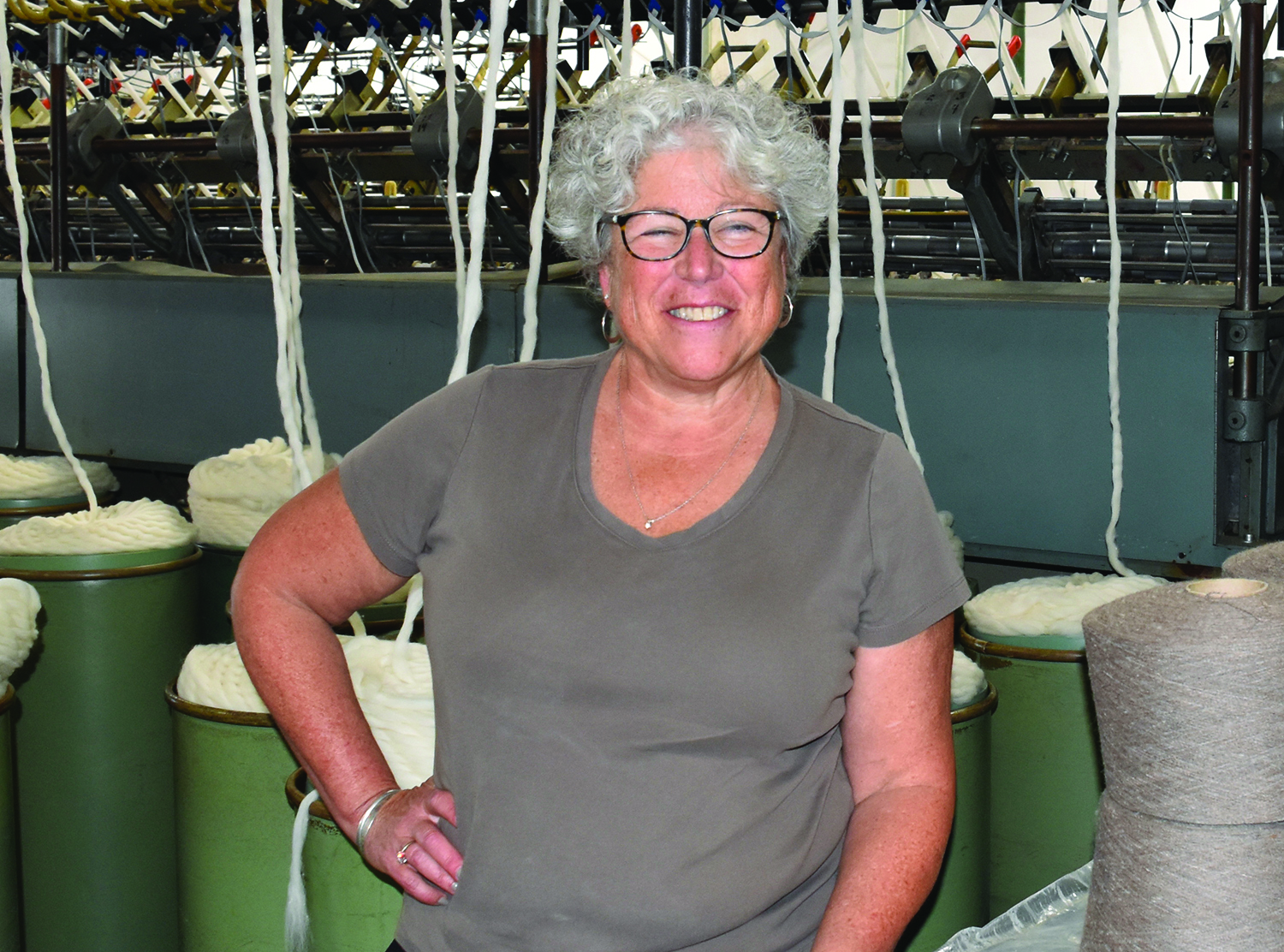
Courtesy Deborah McCabe
By Rachel Phillips
Most people don’t put much thought into where yarn is produced, but Mary Jeanne Packer of Battenkill Fibers Carding and Spinning Mill hopes to change that.
The mill, which operates out of Greenwich, processes wool and other fibers from farmers across nearly 500 miles, and serves as a supplier to yarn retailers across the country.
Packer had aspirations of owning a yarn mill ever since she’d visited Green Mountain Spinnery in Putney, Vt., in 1982, but wasn’t able to make it a reality until 2009. A resident of Vermont, she is also the partner of the Vermont-based GWC Inc. consulting firm, through which she discovered Washington County.
Upon realizing the enormous potential for a yarn mill in the upper Hudson valley, she decided to capitalize on the large fiber industry of the region.
According to Packer, most commercial-scale milling operations in the U.S. have gone out of business. Now, most textiles are milled in China or India, from wool farmed in New Zealand. Battenkill Fibers has offered consumers an alternative option sourced much closer to home.
The demand for Battenkill Fibers’ products has been proven by the success the mill has seen since it first started. Recently, it signed a multi-year contract with Quince and Co., a major yarn distributor, as a supplier. Also in the last year, the mill has expanded to enable a broader range of custom dyeing services in order to better meet demand.
“More and more people want to know that their stuff is ethically sourced and locally processed,” said Packer.
It hasn’t been all victories, though. In June 2010, less than one year after Battenkill Fibers opened its doors, a fire burned the facility to the ground. Packer credits several local organizations for helping to rebuild her business, including the Washington County Local Development Corp., the Hudson Valley Ag Development Corp., Capital Tractor, and the Carmody Ford family. With help from these organizations, the business was back in full operation on Christmas Eve, 2010.
Just five short years later, Battenkill Fibers was named the Washington County Small Business of the Year.
Packer hopes to expand her operation to include hemp and flax processing.
“Now that industrial hemp has been authorized for growing in New York state, there may be an opportunity for yarn-making from the plant stalks,” she said.
She feels that providing farmers with processing services could give them reason to consider growing hemp as another crop and provide them a market for their yields.
To help make this a reality, Packer, a founding member of the Hudson Valley Textile Project, has been working with the organization to encourage people to invest in one or two locally created garments a year that are completely locally produced in Hudson Valley.
